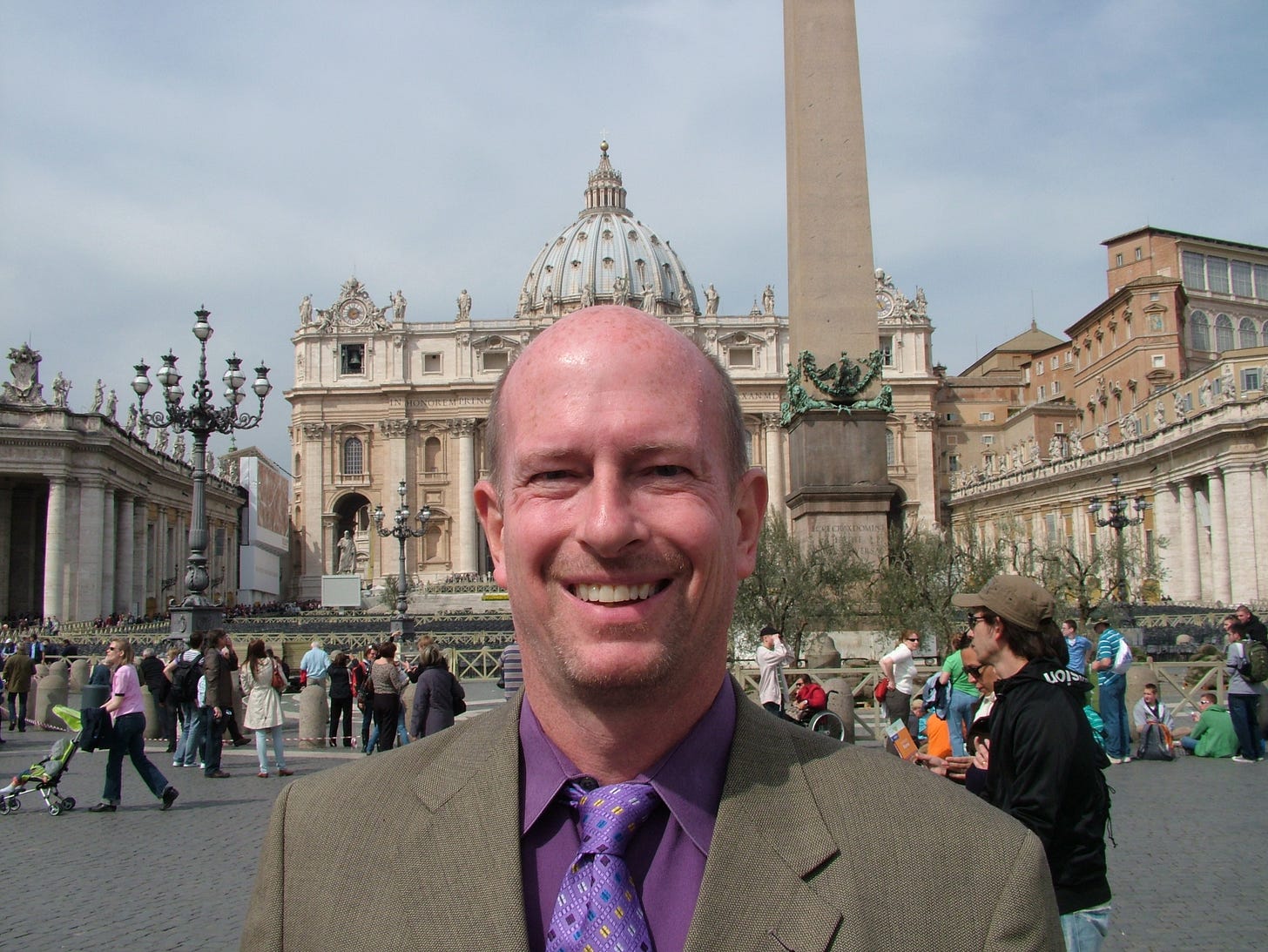Why do some people live with a deep confidence in life and in their ultimate destinies?
Why do others struggle with doubt and anxiety about the future?
The answer may lie in understanding that faith comes in two forms, what I like to call Universal and Religious.
What Faith Really Means
Most people think faith means accepting religious doctrines without evidence.
But this misses something crucial about how faith actually works.
Faith, at its core, simply means trust.
When you sit in a chair, you have faith, that is, you trust, that it won’t collapse.
When you drive on the freeway, you have faith that other drivers will follow the rules of the road.
When you marry someone, you have faith in them despite incomplete knowledge of their character.
All these involve the same basic elements:
Making a decision based on partial information
Taking calculated risks
Trusting despite uncertainty
Building habits of reliance over time
Faith works in the same way.
It’s about trusting in God and what God has revealed, not blind belief in propositions.
Two Different Sources of Trust
Here’s where it gets interesting. People develop trust in God from two very different sources of evidence.
Universal Faith comes from experiences most people can access.
The wonder you feel looking at a starry night sky.
Your sense that moral “facts” exist: for example, that torturing babies is always wrong regardless of what people think about it.
The intuition that effects must have causes.
The feeling that life has meaning and purpose.
These experiences cross religious boundaries. Christians, Muslims, Jews, and even many non-religious people all share them.
They point toward something greater than ourselves.
Religious Faith is trust in God based on the beliefs of particular religious communities and their teachings.
The testimony of prophets like Moses, Jesus, or Muhammad. Sacred texts like the Bible, Torah, or Quran. The authority of religious institutions and their interpretations. Private mystical experiences within specific traditions.
These sources are limited to particular groups. They’re not accessible to everyone in the same way.
Why This Distinction Matters
Understanding these two types of faith explains several puzzles about how people view God and their own lives.
First, why do people from different religions often seem to share similar outlooks?
They may disagree about specific doctrines. But they often share deep trust in life’s ultimate goodness and in the divine source of that goodness.
This reflects their shared Universal Faith.
Second, why do some people lose their faith, their trust in God, when they question religious teachings?
The answer is that they are confusing their Universal Faith with their Religious Faith.
When particular religious beliefs are challenged, some poeple think that means all trust in God must go.
But questioning specific religious claims doesn’t require abandoning all hope. Quite the opposite.
Third, why do some supposedly “non-religious people” still live their lives with confidence, joy and an overwhelming sense of purpose?
They may reject organized religion while maintaining a Universal Faith.
They do trust in God, however they conceive God to be, while questioning the teachings of a given religion.
The Complexity of Real Belief
Most believers actually combine both types of faith.
For example, a Christian might trust God because of:
... wonder at the universe’s complexity (Universal Faith)
... belief in Jesus’s resurrection (Religious Faith)
... moral intuitions about love and justice (Universal Faith), and
... the authority of their church’s teaching (Religious Faith)
These different sources of faith complement and reinforce one another.
Yet they’re logically separate. You can have one without the other.
What This Means for Our Divided World
This framework helps explain religious disagreement without dismissing anyone’s experience.
People can reasonably disagree about the specifics of Religious Faith.
The historical evidence for a particular religious claim is often contested.
Religious institutions sometimes conflict with one another.
Sacred texts often require interpretation that reasonable people dispute.
But Universal Faith operates differently.
It’s based on widely shared human experiences.
It doesn’t require accepting anyone’s authority.
And it’s compatible with scientific investigation and rational inquiry (as are many forms of Religious Faith).
A More Honest Conversation
Perhaps our public discussions about religion would improve if we recognized this distinction.
Instead of asking, “Do you believe in God?” we might first ask:
“Do you trust that existence has ultimate meaning?”
“Do you feel wonder that points beyond the material world?”
“Do you sense moral truths that transcend human opinion?”
These questions get at what underlies Universal Faith.
They’re less divisive than arguments about specific religions – whether God spoke to Mohammed or Joseph Smith received golden tablets.
They acknowledge the spiritual dimension of human experience.
And they don’t require accepting contested historical claims.
The Risk of Trust
Both types of faith, Universal and Religious, involve genuine risk.
Universal Faith could be mistaken.
The awe someone feels in the face of the cosmos could mean nothing special.
Religious Faith could be based on false claims about the founders of a religion.
But risk is unavoidable in human life.
We make countless decisions based on incomplete information.
We trust people who might betray us.
We commit to values that might prove hollow.
The question isn’t whether to take risks. The question is which risks are worth taking.
Living with Uncertainty
Perhaps the most honest position is to acknowledge that both types of faith involve uncertainty.
We don’t have complete mathematical proofs for God’s existence based on premises everyone accepts.
Yet in the face of uncertainty, it is still rational to base one’s life choices on the best evidence at someone’s disposal.
Faith, trust in God, is itself part of that evidence.
It allows people to live with confidence, hope, and a sense of purpose. It grounds their commitment to love, justice, and truth.
Whether that trust is justified remains an open question.
But it’s a risk many thoughtful people choose to take.
And understanding the two forms of faith helps explain why.
Robert J. Hutchinson is the author of numerous books of popular history, including Searching for Jesus: New Discoveries in the Quest for Jesus of Nazareth (Thomas Nelson), The Dawn of Christianity (Thomas Nelson), The Politically Incorrect Guide to the Bible (Regnery) and When in Rome: A Journal of Life in Vatican City (Doubleday). Email him at: roberthutchinson@substack.com











